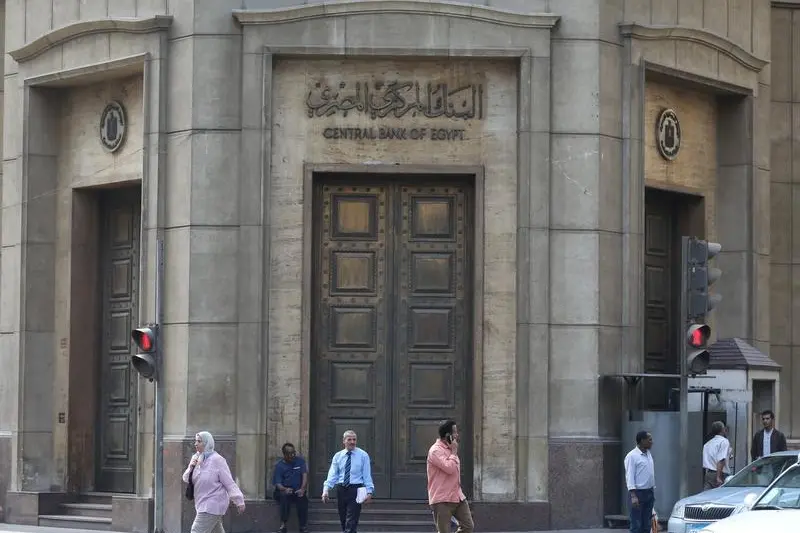PHOTO
CAIRO- Egypt's central bank is expected to leave its main interest rates unchanged at a meeting on Thursday, with a desire to attract foreign funds outweighing the decline in inflation to its lowest in nearly a year, a Reuters poll showed.
Of 18 analysts polled, 15 forecast the central bank would leave rates on hold at its regular monetary policy committee meeting. Three others expected a cut of 100 basis points.
The overnight lending rate of 10.25% and the overnight deposit rate 9.25% are already at the lowest levels since early 2016, before Egypt embarked on a three-year, IMF-backed economic reform programme.
Egypt's annual urban consumer price inflation fell to 3.4% in August, its lowest since October, from 4.2% in July and 5.6% in June, state statistics agency CAPMAS said this month -- well below the central bank's target range of 6% to 12%.
"We think the Central Bank of Egypt (CBE) will likely keep rates unchanged, as it seeks to benefit from increased capital inflows provided by higher real interest rates," said Callee David at NKC African Economics. "The latest inflation print has increased Egypt's real interest rate to 6.4%."
Egyptian one-year treasury bills carried an average yield of 13.7% at an auction last week.
"We have not seen any moderation in interbank and T-bill rates recently pointing to a cut," Arqaam Capital said.
Egypt's biggest state-owned banks, National Bank of Egypt and Banque Misr, said on Monday they were eliminating a one-year certificate of deposit, introduced soon after the coronavirus outbreak, that carried an exceptionally high yield of 15%.
"Current rates maintain a good balance between economic growth, budget and corporate support, as well as high real rates to prevent dollarisation and keep any foreign flows into fixed income attracted to Egypt," said Radwa El Sweify of Pharos.
Some analysts have been expecting the central bank to lower rates to boost economic growth, bogged down by the pandemic earlier this year.
The coronavirus crisis has devastated some of Egypt's main sources of foreign currency, including tourism and remittances from workers abroad.
Egypt's economy grew by 3.5% in the fiscal year that ended on June 30, Planning Minister Hala al-Saeed said this month, a revision down from a preliminary 3.8% the previous month.
"The experience from recent months is that the central bank is reluctant to provide more monetary stimulus," Capital Economics said in a note.
"The CBE appears to have shifted its focus on keeping rates high to support the pound and rebuild its foreign exchange reserves."
(Reporting by Patrick Werr; Editing by Catherine Evans) ((patrick.werr@thomsonreuters.com;))





















